Resources
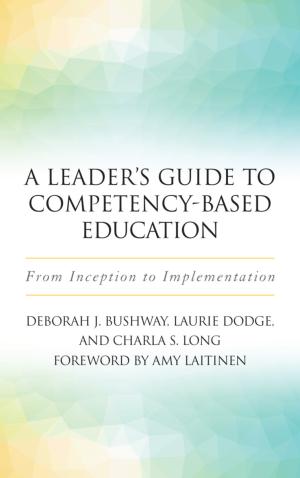
Click Here for Book Review As interest in competency-based education (CBE) continues to grow by leaps and bounds, the need for a practical resource to guide development of high-quality CBE programs led the authors to write this book. Until now, there has been no how-to manual that captures in one place a big picture view of CBE along with the down-to-earth means for building a CBE program. A variety of pressures are driving the growth in CBE, including the need for alternatives to the current model of higher education (with its dismal completion rates); the potential to better manage the iron triangle of costs, access, and quality; the need for graduates to be better prepared for the workforce; and the demands of adult learners for programs with the flexible time and personalized learning that CBE offers. Designed to help institutional leaders become more competent in designing, building, and scaling high-quality competency-based education (CBE) programs, this book provides context, guidelines, and process. The process is based on ten design elements that emerged from research funded by the Gates Foundation, and sponsored by AAC&U, ACE, EDUCAUSE, and the Competency-Based Education Network (C-BEN), with thought partners CAEL and Quality Matters. In short, the book will serve administrators, higher education leaders, faculty, staff, and others who have an interest in CBE by: • Giving context to enable the audience to discover the importance of each design element and to help frame the CBE program (the “why”); • Providing models, checklists, and considerations to determine the “what” component for each design element; • Sharing outlines and templates for the design elements to enable institutions to build quality, relevant, and rigorous CBE programs (the “how”). (From the Publisher)
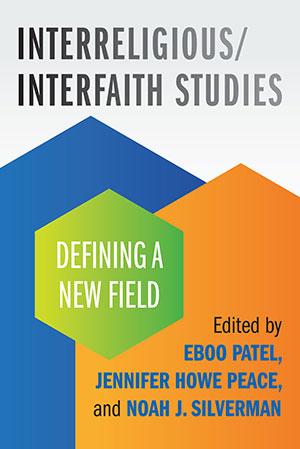
Click Here for Book Review As it is now backed by an impressive number of courses, academic programs and centers, faculty positions, journals and publications, funding, and professional partnerships, there is no longer a question as to whether the interreligious/interfaith field exists. But its meaning and import are still being debated. How is this field distinct from, yet similar to, other fields, such as religious or theological studies? What are its signature pedagogies and methodologies? What are its motivations and key questions? In other words, what is the shape of interfaith and interreligious studies, and what is its distinct contribution? These questions are the driving force behind this anthology. (From the Publisher)
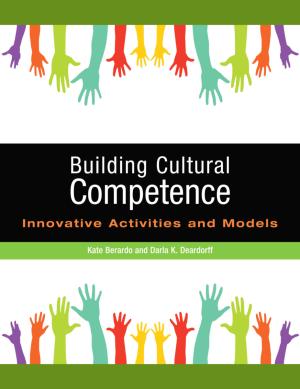
For HR directors, corporate trainers, college administrators, diversity trainers and study abroad educators, this book provides a cutting-edge framework and an innovative collection of ready-to-use tools and activities to help build cultural competence―from the basics of understanding core concepts of culture to the complex work of negotiating identity and resolving cultural differences. Building Cultural Competence presents the latest work in the intercultural field and provides step-by-step instructions for how to effectively work with the new models, frameworks, and exercises for building learners’ cultural competence. Featuring fresh activities and tools from experienced coaches, trainers, and facilitators from around the globe, this collection of over 50 easy-to-use activities and models has been used successfully worldwide in settings that range from Fortune 500 corporations to the World Bank, non-profits, and universities. Learn updates on classic models like the DIE (Description, Interpretation, Evaluation) framework and the U-Curve model of adjustment. Engage in new exercises to help build intercultural competence, using the practical step-by-step guidance on how to effectively facilitate these activities. Stay relevant and have positive impact with clients, organizations, and students with these well-organized, easy-to-implement, and high impact collection of frameworks, models, and activities. The new, research-based models work for developing cultural competence in any environment, and for designing effective cultural competence courses. Education abroad administrators will be able to use these activities in their pre- departure orientations for students going abroad. Corporate human resource professionals will find these activities invaluable in cultural competence building programs. (From the Publisher)
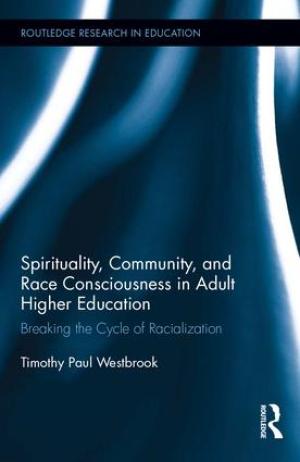
Drawing on the lived experiences of Black students in adult degree completion programs at predominantly White, Christian institutions in the southern United States, this book presents a model for reimagining adult higher education. Westbrook explores the reasons students enrolled in degree programs, how they experience their predominantly white institutions, and how their experiences affect their lives. Employing Critical Race Theory and Christian theology as frameworks for evaluating the students’ experiences, the author sheds light on the ways African American experiences to inform, critique, and shape Christian adult learning in higher education. (From the Publisher)
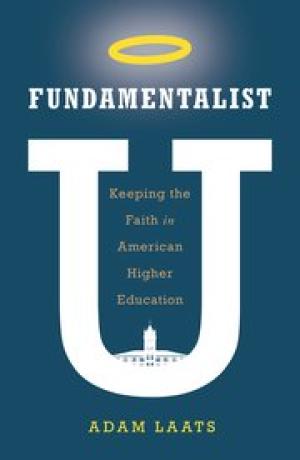
Click Here for Book Review Colleges, universities, and seminaries do more than just transfer knowledge to students. They sell themselves as "experiences" that transform young people in unique ways. The conservative evangelical Protestant network of higher education has been no different. In the twentieth century, when higher education sometimes seemed to focus on sports, science, and social excess, conservative evangelical schools offered a compelling alternative. On their campuses, evangelicals debated what it meant to be a creationist, a Christian, a proper American, all within the bounds of Biblical revelation. Instead of encouraging greater personal freedom and deeper pluralist values, conservative evangelical schools thrived by imposing stricter rules on their students and faculty. In Fundamentalist U, Adam Laats shows that these colleges have always been more than just schools; they have been vital intellectual citadels in America's culture wars. These unique institutions have defined what it has meant to be an evangelical and have reshaped the landscape of American higher education. Students at these schools have been expected to learn what it means to be an educated evangelical in a secularizing society. This book asks new questions about that formative process. How have conservative evangelicals hoped to use higher education to instill a uniquely evangelical identity? How has this identity supported the continuing influence of a dissenting body of knowledge? In what ways has it been tied to cultural notions of proper race relations and proper relations between the sexes? And perhaps most important, how have students responded to schools' attempts to cultivate these vital notions about their selves? (From the Publisher)

Teaching and learning become rich and exciting when any classroom makes room for and taps into the resources of diverse backgrounds, contexts, and identities. Also, it’s the right thing to do. When I began teaching online, I knew classroom diversities might increase due to broadening access, but I suspected student diversities could also be less visible due to the individuating and sometimes alienating aspects of technology. Yet in online contexts, foregrounding and integrating room for diversities into teaching and learning is surprisingly easier than you might imagine. Online students have more ways to participate in conversation, experience greater equity from the outset, and often exhibit deeper transparency. How can an online educator make more of diversities in a virtual classroom and tap into their teaching and learning potential? Increased access to classroom diversities was an important draw for me into online education because I teach at a theological school in the far eastern corner of Tennessee. During a 2014 sabbatical, I traveled throughout the United States, Europe, Africa, and Mexico. In many places, vital and thriving ministry was happening without good access to theological education. Many of the people I encountered would not be able to relocate to my school. I began imagining a classroom where a male, Kenyan micro-lender in the Mathare slum district of Nairobi and a Chicago-based, African American woman in urban church planting could have access to theological education and both be in the same room learning together and from one another. The kind of diversities I imagined while traveling now exist in my online contexts, and I aim to embrace them as an asset in theological education. How can online teaching and learning make room for greater diversities? Begin by welcoming student engagement that makes connections to students’ own contexts and backgrounds. Then, incentivize, encourage, and reward these connections across your course design: in opening introductions; discussion posting; student selection of readings, assignments, and projects; and integrative exercises like papers or exams. In all learning tasks and rubrics, objectives should include making resourceful connections to one’s own history, identity, or current contexts. Keep students engaged and invested while simultaneously making learning moments more tangible by emphasizing the contribution of student diversities to learning. Doing so makes diversities a more visible and constructive part of teaching and learning. Students are invited to witness connections happening in the work of their peers and are drawn to do the same. They begin to hear, learn, and feel challenged by their own and others’ diverse perspectives and orientations. Yet, I’ve learned along the way that the contours of online classroom diversities are unpredictable and can unfold in unexpected ways. For example, a white, male American student in an online course entered imagining he had no resources from his own context for theological learning. He named his rural and poor upbringing, and his ministry experience in both conservative and progressive West Virginia congregations as limitations. In response, other students helped him recognize the displacements and pressures that were indeed shaping his theological convictions. Identity in online contexts includes complex and shifting aspects of race, sexuality, trauma, geography, economics, citizenship, displacements, and more. Often, students’ own self-awareness around this multi-layered complexity is shifting in the midst of a course and in response to readings, peer-to-peer engagement, and/or assignments. Hosting spaces where students are invited to name what they are learning from their own contexts and backgrounds and from those of their peers becomes vital. Online learning tends to feel more “democratic” because it allows all learners to enter discussions under similar parameters. But online educators must be aware of persisting inequities. Safety can be heightened by using netiquette guidelines and checking in personally with students when they shift into overly aggressive or suddenly silent postures. Yet, if “democratic” means majority opinions rule, minoritized students will be susceptible to overt and subtle forms of silencing by their peers, while being more exposed and vulnerable in the process. In my experience, subtle forms of deflecting peer voices happens when students champion what they already (think they) know, rather than sharing what they are actively learning. I prioritize and reward only the latter. Surfacing diversities that already exist, and making room for more diversities, enhances learning in the online classroom. It’s risky and needs adaptive and adapting postures, a self-aware and engaged teacher, and rethinking of all elements of course design. I remind students regularly that part of our learning together is about how theological engagement and conversation becomes welcoming and constructive. In that engagement and conversation, every person is a vital and valued contributor in the process of teaching and learning. Making more of diversities enhances every potential for learning, empathy, and relevance.
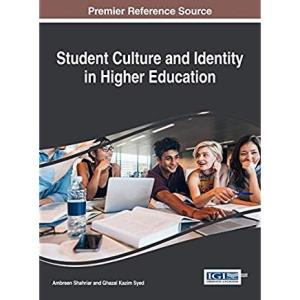
The pursuit of higher education has become increasingly popular among students of many different backgrounds and cultures. As these students embark on higher learning, it is imperative for educators and universities to be culturally sensitive to their differing individualities. Student Culture and Identity in Higher Education is an essential reference publication including the latest scholarly research on the impact that gender, nationality, and language have on educational systems. Featuring extensive coverage on a broad range of topics and perspectives such as internationalization, intercultural competency, and gender equity, this book is ideally designed for students, researchers, and educators seeking current research on the cultural issues students encounter while seeking higher education. (From the Publisher)
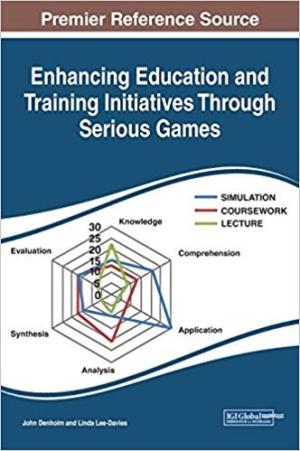
Games have become popular tools to enhance learning in both educational and business environments. Analyzing the link between games and their results on students can help provide advances for learning initiatives in the future. Enhancing Education and Training Initiatives Through Serious Games is an essential reference source that examines the impact that games and simulations have within different learning environments. Featuring in-depth discussions on relevant topics including self-reporting surveys, project management techniques, academic training, and game design, this publication is an ideal resource for academicians, students, business owners, and professionals that are interested in discovering the advances of serious gaming techniques. (From the Publisher)
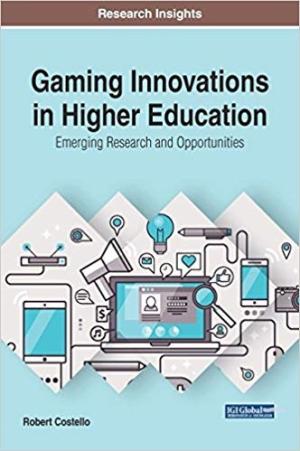
Gaming technologies have become effective learning tools within education. Gamification has the potential to increase engagement using real-time feedback on learning activities, which allows students to reflect on their completion and retention of a learned activity. Gaming Innovations in Higher Education: Emerging Research and Opportunities is an essential reference work featuring the latest scholarly knowledge on the application of different gaming techniques within education to make learning activities more enjoyable and successful. Including research on a number of topics such as virtual laboratories, interaction media, and intrinsic and extrinsic motivation, this publication is ideally designed for academicians, researchers, and students interested in the benefits of providing an entertaining and intellectually-stimulating learning environment. (From the Publisher)
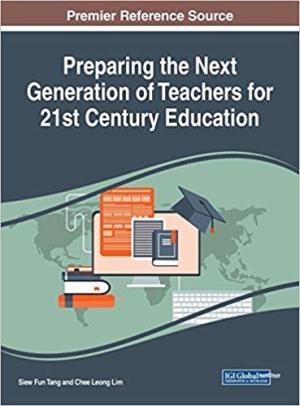
As educational standards continue to transform, it has become essential for educators to receive the support and training necessary to effectively instruct their students and meet societal expectations. To do this, fostering education programs that include innovative practices and initiatives is imperative. Preparing the Next Generation of Teachers for 21st Century Education provides emerging research on innovative practices in learning and teaching within the modern era. While highlighting topics such as blended learning, course development, and transformation practices, readers will learn about progressive methods and applications of 21st-century education. This book is an important resource for educators, academicians, professionals, graduate-level students, and researchers seeking current research on contemporary learning and teaching practices. (From the Publisher)
Wabash Center Staff Contact
Rachelle Green, Ph.D.
Associate Director
Wabash Center
greenr@wabash.edu